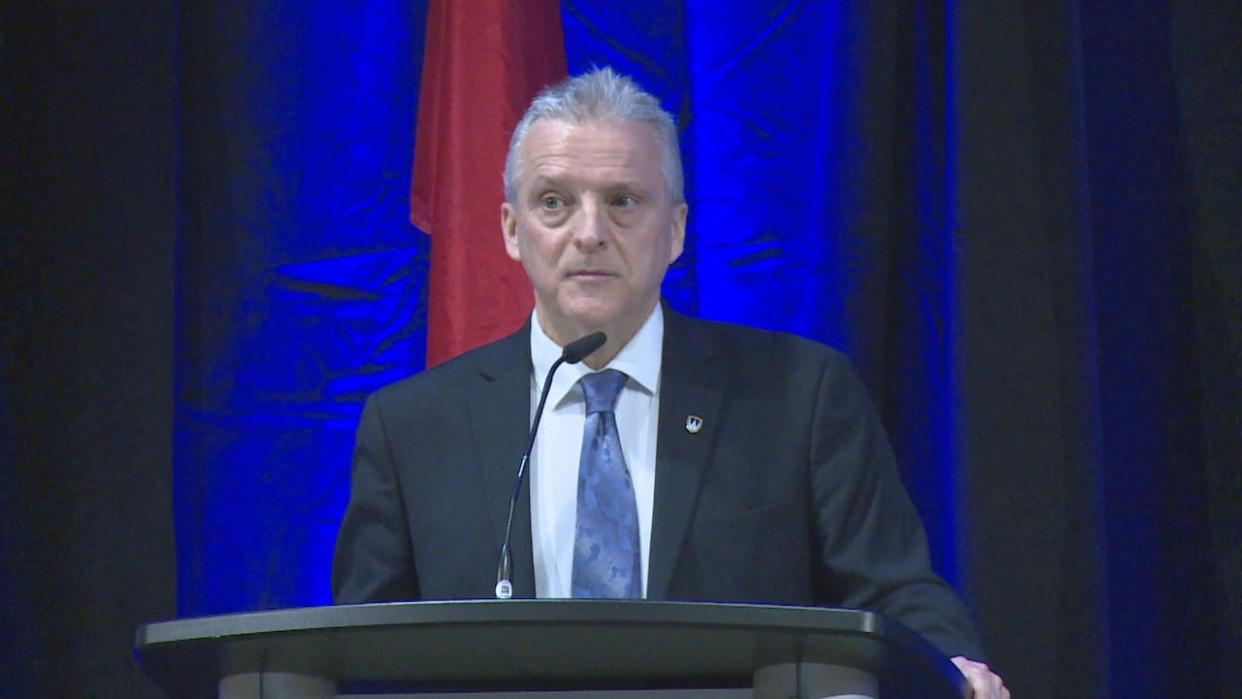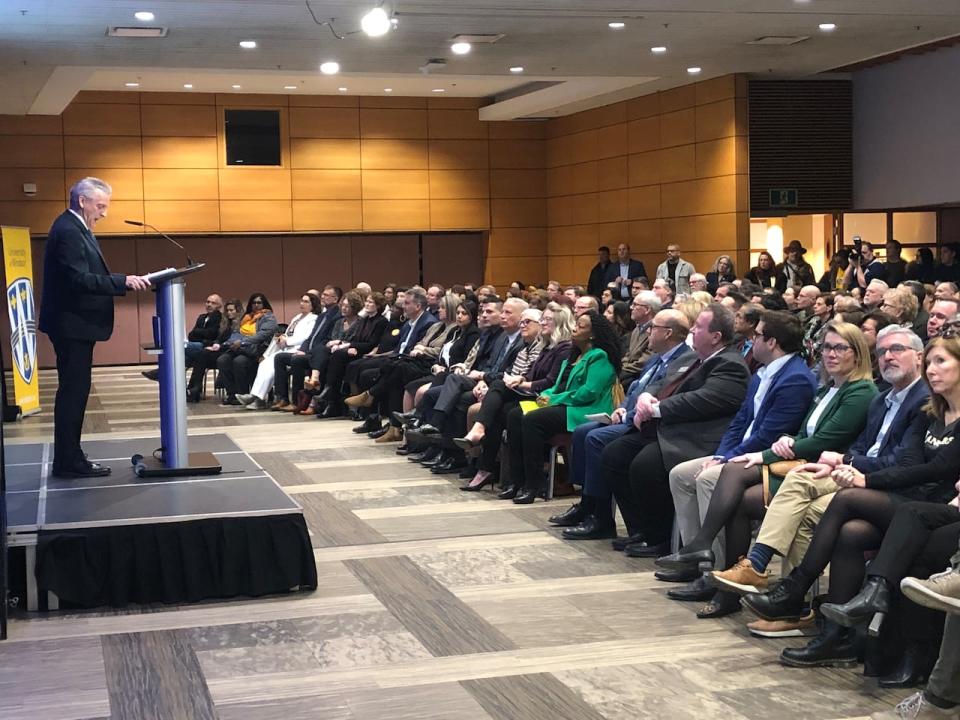Impact of international student cap lessened at UWindsor, president says, as university projects deficit

The University of Windsor will feel the impact of the federal government's international student cap, but the impact will likely be blunted by the makeup of their student body, the university's president said Wednesday.
In his annual State of the University address, President and Vice-Chancellor Robert Gordon said the university will face a deficit for the 2024-25 school year and has created a budget balancing committee to mitigate the impact.
He says that's because of uncertainty related to the province's blue-ribbon panel on financial sustainability in post-secondary education, and the newly introduced cap on international student enrolment.

University of Windsor President Robert Gordon delivers his State of the University Address on Wednesday, Feb. 7, 2024. (TJ Dhir/CBC)
"I want to reiterate that these fiscal challenges and other obstacles are sector wide," Gordon said. "Careful financial planning is essential to navigate these uncertainties."
Bur, Gordon said, the cap on international students may affect the university less than other post-secondary institutions.
"One of the benefits of that announcement was that it doesn't impact graduate students," Gordon said. "We have a large proportion of our international student enrolment occurs at the masters and PhD level. So that [will] lessen than the impact of it.
"But at the same time, our attempt has been to, over the past several years, to continue to grow our undergraduate international student population. So we are doing everything we can to make sure that we are well-aligned with respect to where the cap may fall."
According to university data, about 25 per cent of its student body in fall 2023 was made up of graduate students studying on a visa. Its student body is five per cent of undergraduate students on a visa at the same time period.
When asked whether domestic students could see a tuition increase to help offset international student numbers, Gordon noted the 2018 provincial tuition cap.
"[We] just can't do anything on that. We're hoping that there might be a positive response from the province to allow for more flexibility on that," Gordon said. "But right now, we are having to kind of explore a number of different options for how we balance our budget moving forward."

University of Windsor President Robert Gordon delivers his annual State of the University Address on Wednesday, Feb. 7, 2024. (TJ Dhir/CBC)
Gordon also noted the new student residence, a public-private partnership the university broke ground on this year. Other highlights of the year include a new employee mental health strategy, partnership with the CanAm Indian Friendship Centre, carbon neutrality master plan and inaugural Black alumni weekend. He also spoke about the university's initiatives on truth and reconciliation and equity, diversity and inclusion.
Gordon also noted that while the City of Windsor and region place among the highest on the Business Conditions Index for Ontario, the region is also coping with housing and cost of living challenges.
"In turn, there have been increasing demands for highly skilled talent in our region, and the University of Windsor is well positioned to contribute to this through innovation, education and engagement," he said.
"But at the same time, our city contends with some of the highest unemployment rates and with the impact of neighbourhoods that have some of the lowest household incomes levels in the province. The persistent challenges of housing and escalating costs further compound the situation. Addressing these conflicting realities requires careful and balanced attention."
Gordon said the University of Windsor placed in the top 44 per cent of QS World University Rankings, an international set of university rankings — a position, he says, is 100 places improved over the university's 2022 ranking.
"Our progress reflects the extensive efforts of our faculty, staff, students, incredible alumni and partners," he said.


